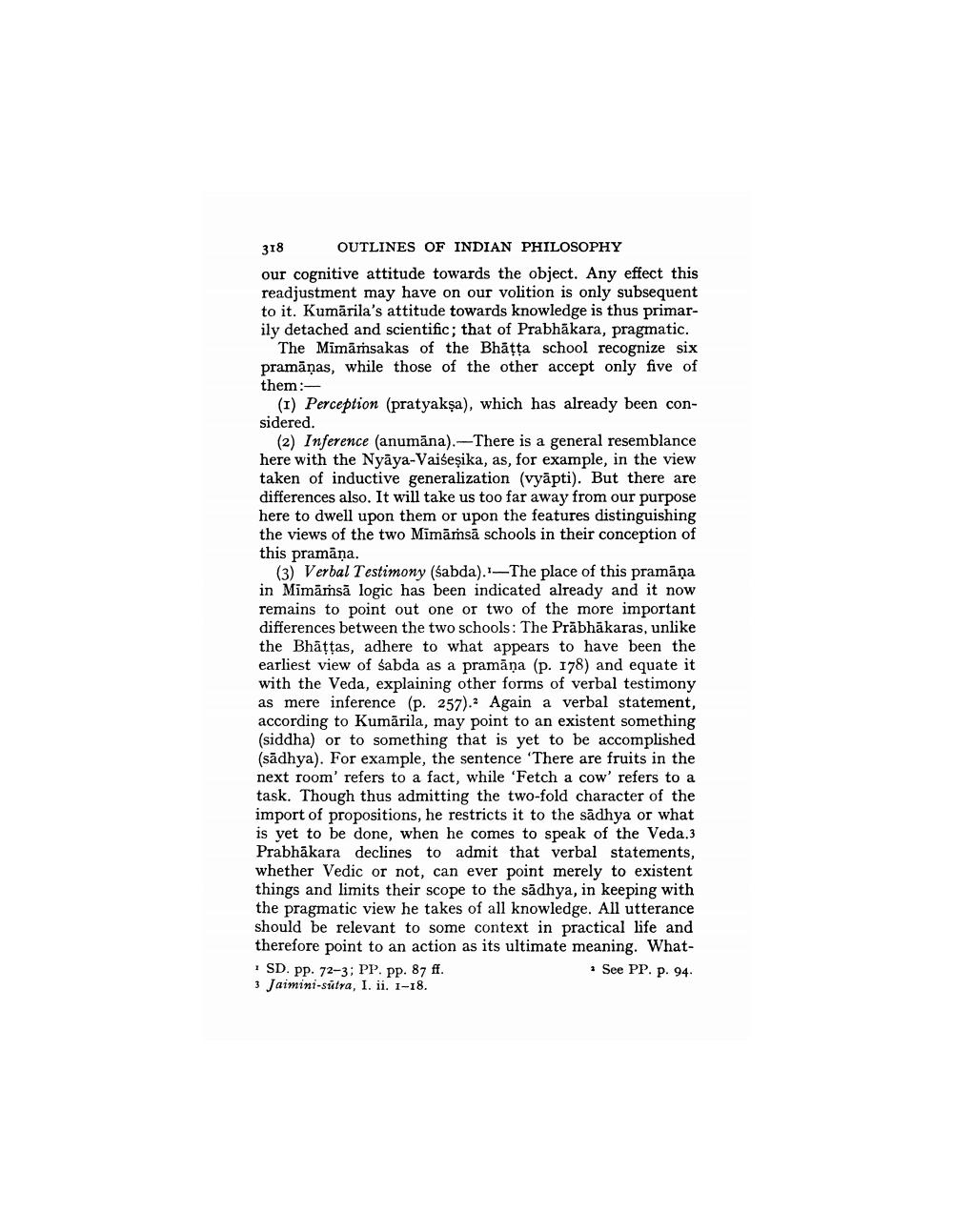________________
318
OUTLINES OF INDIAN PHILOSOPHY
our cognitive attitude towards the object. Any effect this readjustment may have on our volition is only subsequent to it. Kumārila's attitude towards knowledge is thus primarily detached and scientific; that of Prabhakara, pragmatic.
The Mimāmsakas of the Bhaṭṭa school recognize six pramāņas, while those of the other accept only five of them:
(1) Perception (pratyaksa), which has already been con
sidered.
(2) Inference (anumāna).-There is a general resemblance here with the Nyaya-Vaiseṣika, as, for example, in the view taken of inductive generalization (vyāpti). But there are differences also. It will take us too far away from our purpose here to dwell upon them or upon the features distinguishing the views of the two Mimämsä schools in their conception of this pramāna.
(3) Verbal Testimony (śabda).-The place of this pramāņa in Mimāmsā logic has been indicated already and it now remains to point out one or two of the more important differences between the two schools: The Prabhakaras, unlike the Bhāṭṭas, adhere to what appears to have been the earliest view of sabda as a pramāņa (p. 178) and equate it with the Veda, explaining other forms of verbal testimony as mere inference (p. 257). Again a verbal statement, according to Kumārila, may point to an existent something (siddha) or to something that is yet to be accomplished (sadhya). For example, the sentence 'There are fruits in the next room' refers to a fact, while 'Fetch a cow' refers to a task. Though thus admitting the two-fold character of the import of propositions, he restricts it to the sadhya or what is yet to be done, when he comes to speak of the Veda.3 Prabhakara declines to admit that verbal statements, whether Vedic or not, can ever point merely to existent things and limits their scope to the sadhya, in keeping with the pragmatic view he takes of all knowledge. All utterance should be relevant to some context in practical life and therefore point to an action as its ultimate meaning. What1 SD. pp. 72-3; PP. pp. 87 ff. See PP. p. 94.
3 Jaimini-sutra, I. ii. 1-18.




